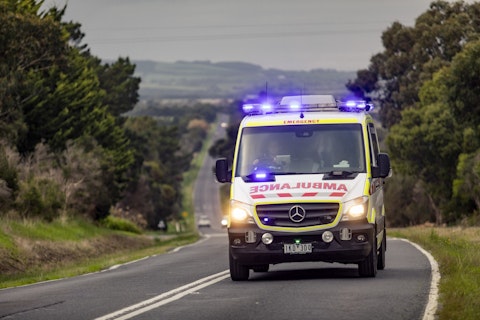Consultation with family and friends supporting the mental health of paramedics
Paramedics provide an essential service to our community and help us in our times of greatest need. But their unique role means that they are more likely to experience mental health concerns and suicidal distress. Family and friends are often the main support for paramedics, however there are limited resources available to equip and support them for this role.
In mid-2022, Everymind conducted a national consultation with 72 family and friends of paramedics experiencing mental health concerns or suicidal distress to learn about their unique caregiving role, their wellbeing, challenges and needs. These findings have informed the development of a new online support program titled Minds Together for family and friends supporting the mental health of paramedics. Family and friends can sign-up for this free, self-paced online program on mindstogether.org.au.
Family and friends told us:
About the paramedic they support
- 50% were diagnosed with a mental illness. The most common mental illnesses were anxiety (36%), depression (29%) and PTSD (24%).
- 42% had experienced suicidal distress.
- 63% had or were currently receiving treatment for their mental illness.
- The main challenges were exposure to trauma (35%), shift work (28%), negative culture/stigma (20%) and limited support at work (17%).
About their experiences as a caregiver
- 50% experienced a severe to very severe level of strain from their caregiving role, 42% experienced a moderate level of strain and only 8% experienced no strain at all.
- 37% experienced a high or very high level of psychological distress, 31% experienced a moderate level and 32% experienced a low level.
Partners, parents, siblings, friends and colleagues told us about their day-to-day experiences of supporting the mental health of paramedics.
Types of support
- Emotional (58%)
- Practical (52%)
- Listening/talking (24%)
- Psychological (17%)
- Financial (8%).
Key challenges
- Time pressures (21%)
- Exhaustion/burnout (21%)
- Their paramedic not sharing how they were feeling (15%)
- Their paramedic not wanting support (14%)
- Not knowing how to help (14%)
- Distance from their paramedic (10%)
- Workplace issues (8%).
“As a support person there is only so much I can do. Seeing someone you love go through things that you can’t help with is painful. I may be able to listen, manage the day to day family needs or just be there for him, but trying to do this and support him at the same time can be draining and hard.”
Fourteen family members and friends participated in one-on-one interviews. Key themes included that:
- They had taken on extra responsibilities at home, which at times affected their wellbeing
- Their caregiving role can negatively affect their relationships with their family and friends
- Their paramedic needed both informal and formal support
- It is hard to understand the impact of working as a paramedic, which sometimes made them feel helpless
- Self-care is important
- Online programs for family and friends are needed to increase understanding of the paramedic experience.
Survey methodology
The online survey was completed in mid-2022 by seventy two (n=72) family or friends supporting a currently or previously employed paramedic experiencing symptoms of mental ill-health or suicidal distress. Survey participants were predominantly female (81%) and were mostly spouses (39%) or friends (28%) of paramedics. 54% lived with the paramedic they supported. Fourteen survey participants took part in an in-depth interview with a researcher.
This research project is funded by Movember and The Distinguished Gentleman’s Ride: Veteran’s and First Responders Mental Health Grant Program and conducted by Everymind in partnership with NSW Ambulance, Fortem Australia and the University of Newcastle.
Download these findings as a factsheet.
Contact
Please reach out to Everymind Project Lead, Dr Philippa Ditton-Phare, with any questions.



